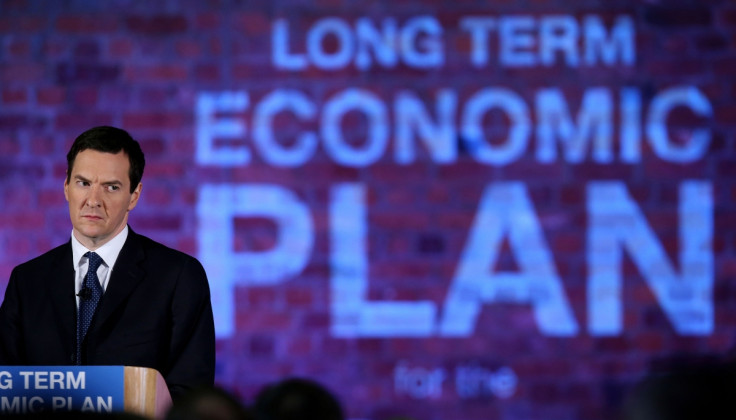Autumn Statement 2015: What do businesses want from George Osborne?

Business lobby groups are calling on Chancellor George Osborne to bolster confidence and to refrain from cutting spending areas that boost or protect growth. In the chancellor's spending review and budget statement, businesses are hopeful Osborne will realise the importance of companies and business growth.
The Confederation of Business Industry (CBI) and the Federation of Small Businesses (FSB) have both urged the Tory leadership hopeful to focus on infrastructure as one of the most prominent points on the agenda – especially train links as part of the Northern Powerhouse are key for geographical advantages.
Osborne is setting out his spending review for the next five years as well as the Autumn Budget Statement on 25 November. With a much bigger than expected deficit in October of £7.5bn ($11.31bn), he will have little space to make major investors.
New director-general of the CBI Carolyn Fairbairn said that businesses understand and support the Conservative chancellor's focus and effort to reduce the deficit, but adds that "by protecting productivity-enhancing spending, for example, on innovation and infrastructure, we can create the conditions that will help businesses in Britain thrive".
As part of a larger issue of complicated tax rates, the CBI also calls for the government to simplify the tax regime, ahead of the business tax road map it will set out in April 2016. The UK's property tax system has been branded the most complicated in the world, and the Taxpayers' Alliance has said that the taxation system in the country is "hideously complex".
"Ultimately, companies will be looking for clarity on a range of issues, from the apprenticeship levy to business rates, and we would urge the government to beware the cumulative burden of these policies on businesses," Fairbairn said.
Businesses are also urging the chancellor to ensure that innovation spending, the lowest in all G8 countries, should be used effectively. The business community also hopes that the government would refrain from cutting innovation costs, as a necessary fund for companies of all sizes.
Size matters
Small businesses are more concerned about the government's current spending and saving policies towards businesses. With the living wage coming into play in 2016 to make up for the government's tax credit cuts, it is these businesses that will be hit hardest.
Ultimately, companies will be looking for clarity on a range of issues, from the apprenticeship levy to business rates, and we would urge the Government to beware the cumulative burden of these policies on businesses
Small and medium enterprises are also concerned about the end of March 2016, when the 100% small business rate relief is set to expire. At the moment, small businesses with a rateable property value of less than £6,000, can get 100% small business rate relief, as opposed to the standard rate of 50%.
In March, this will be reset. "Business rates are a huge burden on the small business community, and we call on the chancellor to maintain the doubling of small business rates relief beyond next April," FSB national chairman John Allan has said, arguing that the rate relief has helped small businesses tremendously. "Any lowering of the relief will be a body blow to many businesses, especially those on the high street."
Allan concluded: "The best way the Autumn Statement can help small firms raise wages is to help them grow, boost productivity and lower their business costs, through maintaining welcome measures such as small business rates relief and continuing not to raise fuel duties."
© Copyright IBTimes 2025. All rights reserved.






















